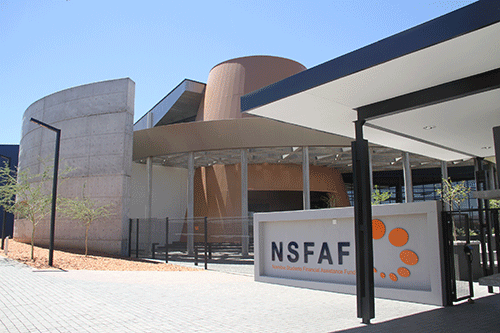As plans by the government draw closer to dissolve the Namibia Students Financial Assistance Fund, top executives are tendering their resignations - citing uncertainty.
The authorities have set 31 December 2023 as the deadline to reintegrate the student funding body into the higher education ministry, where it will function as a department.
Only one staff member resigned in each of 2019 and 2020, while three left the institution in 2021.
So far in 2022 alone, four staff members have resigned from the parastatal, including two executive members – chief financial officer Meriam Dikuua and chief information officer Nabot Uushona.
Dikuua joined the NSFAF in July 2021, while Uushona started working for the parastatal in 2017. An employee who asked anonymity said the NSFAF reintegration roadmap is not properly articulated.
“Such state of affairs has created employment insecurity and an uncertain future among the employees,” he said.
The NSFAF has a workforce of 93 employees. Contacted for comment, NSFAF spokesperson Olavi Hamwele last week confirmed the exodus by employees due to uncertainty.
Apart from resignations, Hamwele noted that the NSFAF is currently facing the challenge of attracting the best talents in the labour market due to the directive that all new recruits should be appointed on contracts until the end of 2023. Said Hamwele: “31 December 2023 is earmarked as a closure date for the NSFAF.
As this date draws closer, more staff members leave the institution, with the increased inability of the institution to attract the requisite talent.”
Equally, this state of affairs impacts the efficient delivery of the institutional mandate. He argued that the benefits of reintegration are yet to be articulated.
“The study that was done in 2018 recommended against reintegration, indicating that the current NSFAF has proper systems, records and is more efficient than when it was a department in government,” he charged.
Last week during her ministry’s annual address, higher education minister Itah Kandjii-Murangi directed the committee dealing with the issue of the NSFAF’s reform to speed up the process, and to report to her on progress made thus far.
For years, there have been plans to revert the NSFAF to a directorate in the higher education ministry, but it failed to materialise due to resistance from critics.
“We should avoid being fixated on our past year’s achievements and challenges. We are in 2022 now. This is the year of reimaging. The technology, innovation (and properly coordinated research) leg of the ministry has to take centre-stage and be visible. We aim to accelerate the NSFAF’s reform work.
In fact, to those in the committee that is spearheading this, please submit your draft timeline for this year - for us to discuss and agree to it,” she stated then.
A committee headed by the higher education ministry has been established for the restructuring of the fund, with the Ministry of Finance being part of it.
The plan to restructure the fund has been coming since 2017 when Kandjii-Murangi said it would become a directorate in her ministry as per President Hage Geingob’s proposal at the time to Cabinet that the NSFAF be dissolved.
However, for such a move to be possible, the law under which the entity was founded would first have to be repealed. The reason why the government created the NSFAF as a parastatal was that it had no capacity or could not be capacitated to handle the magnitude of the task of serving all needy Namibian students. The NSFAF came into being and became operational in 2000, replacing the Public Service Bursary Scheme, whose purpose was to train people to work solely in the civil service. It was then established in 2013 as a parastatal to provide financial assistance by way of study loans to all needy full−time Namibian students enrolled at recognised higher learning institutions. This means that from 2000 to 2012, NSFAF was operating as a directorate under the ministry of education.


